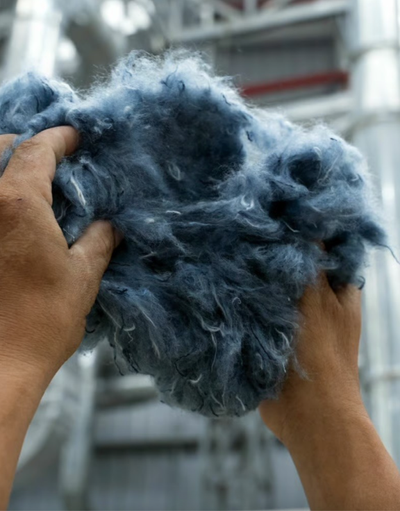Colorado-based materials innovator Living Ink has raised $3 million in a priced funding round to accelerate the development of sustainable, bio-based pigments and diversify the feedstocks used in its production process. The company announced the round will fuel expansion into new biomass waste inputs and support the build-out of a pilot production facility aimed at on-site processing.
Investors in the round include Meliorate Partners, Evergreen Climate Innovations, Savia Ventures, Fashion For Good, and Norfolk Green Ventures.
Living Ink is known for its renewable colourant technology, converting biomass waste into carbon-negative pigments. Its flagship product, Algae Black, serves as a sustainable alternative to traditional carbon black derived from fossil fuels. The pigment is already commercially deployed across industries including packaging, apparel, plastics, and coatings, with global brands such as Patagonia, Nike, Coach, New Balance, Kathmandu and O’Neill among its adopters.
CEO and co-founder Scott Fulbright stated that the company is now focused on cost reduction and demonstrating commercial scalability. The new capital will help Living Ink expand its feedstock base, integrating waste from sectors such as food and beverage, precision fermentation, anaerobic digestion, and algae cultivation. By doing so, the company aims to enhance circularity while decreasing raw material and transportation costs.
A core component of this funding round includes the construction of a pilot production facility located near biomass sources. This model, the company says, will enable on-site pigment production, reducing supply chain emissions and laying the groundwork for future decentralised manufacturing networks.
Living Ink’s continued momentum includes its selection into Cohort 6 of the 100+ Accelerator, a global initiative backed by AB InBev, Coca-Cola, Danone, Colgate-Palmolive, and Unilever. As part of the programme, the company is working with AB InBev to turn brewery waste into usable pigment inputs.
This latest funding builds on the $3.5 million raised in 2023 and Living Ink’s participation in Fashion for Good’s Black Pigment Pilot, a project aimed at validating low-impact black pigment alternatives made from algae, wood, and industrial carbon.
With a strengthened investor base and growing brand partnerships, Living Ink is positioned to scale its bio-based solutions, offering a viable path forward for industries seeking to reduce reliance on fossil-derived materials.





